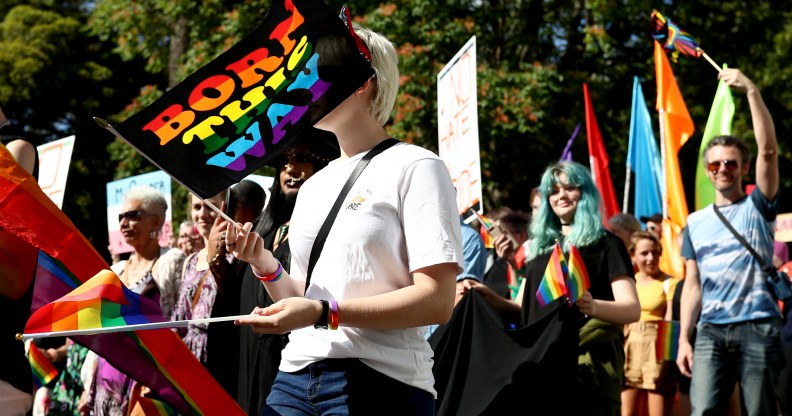New estimates show one in five offences in New Zealand could be hate crimes

Auckland Pride, 2019. (Hannah Peters/Getty)
Around one in five offences committed in New Zealand could be classified as hate crimes, according to new estimates, but data isn’t being collected.
The New Zealand Ministry of Justice’s “Highly Victimised People” report was based on results from 8,000 participants in the New Zealand Crime and Victim’s Survey.
The report also showed that for sexual violence offences, 75 per cent could be motivated by hate because of the victim’s race, religion, sexual orientation, gender or disability.
However, although sexual orientation and gender identity are protected characteristics under the Sentencing and Parole Act 2002, under the country’s Human Rights Act it is only a criminal offence to “incite disharmony” on the grounds of race, ethnicity and nationality.
Also, according to the New Zealand Human Rights Commission (HRC), police in the country do not systematically collect data on hate crimes so it is impossible to know the actual figure.
According to the HRC: “Without such data, we do not know the scale and scope of the problem and so cannot design, implement and evaluate an effective response.”
The report also found that LGBT+ people were more likely to be victims of hate crimes, but were less likely to report them.
According to Stuff, the executive director of Rainbow Youth, Frances Arns, said: “While it’s disappointing to see this report, it’s not surprising to us that rainbow communities are disproportionately affected by hate crimes.”
Justice Minister Andrew Little also told Stuff that the statistics “paint a stark picture of the discrimination many members of the LGBTQIA+ [community] face”.
He added: “As part of the review of our laws covering hate speech the Ministry of Justice is working with the Human Rights Commission to examine whether there are gaps.
“For example, the law in the Human Rights Act makes it a criminal offence to incite disharmony on grounds of race, nationality or ethnicity. But inciting disharmony on grounds of religion or sexuality are not covered. I anticipate having more to say on this next year.”

